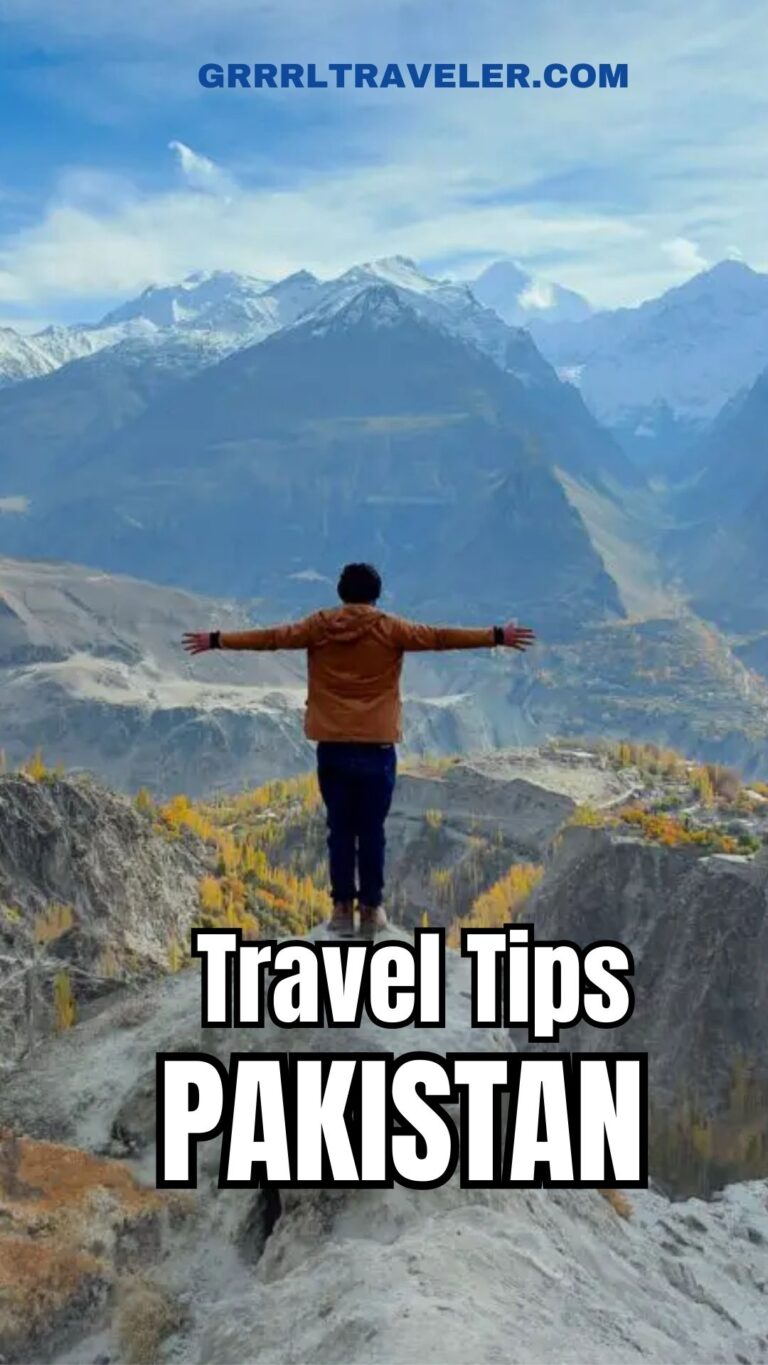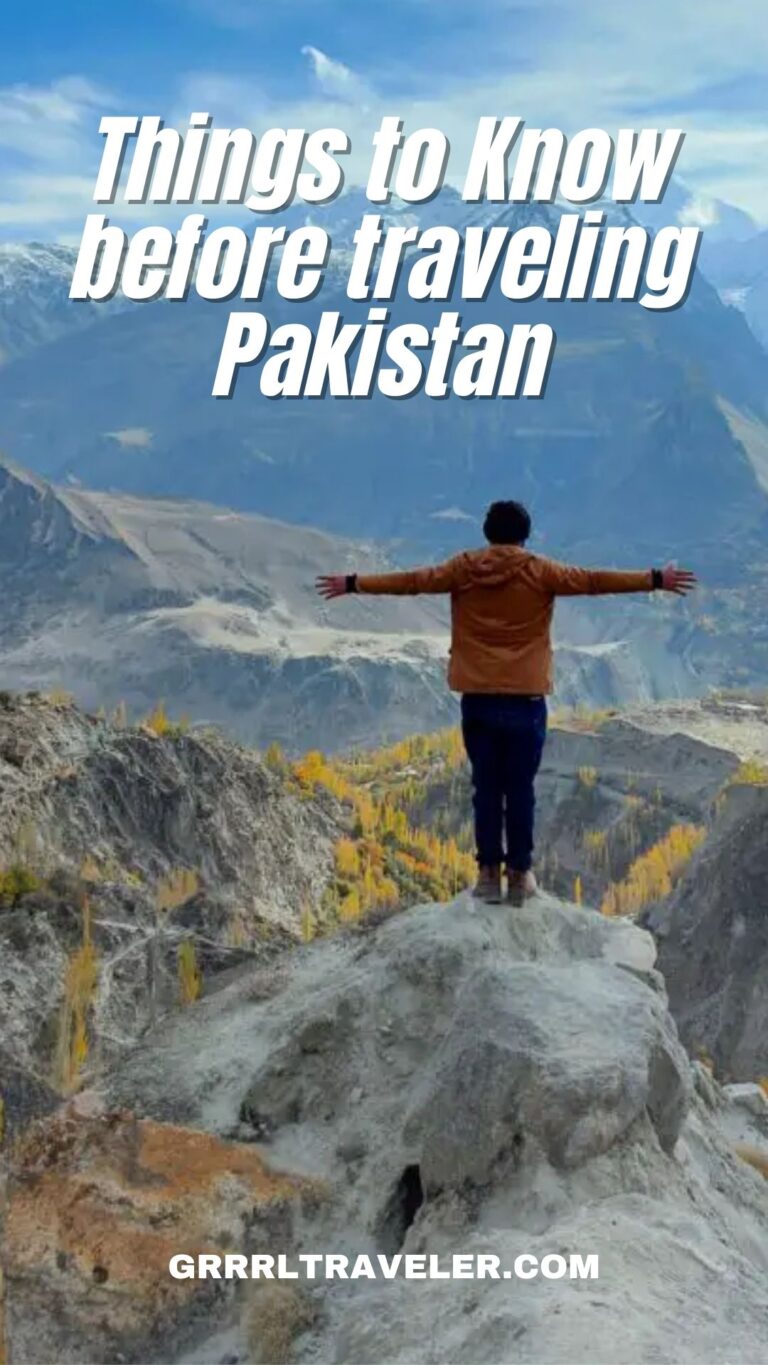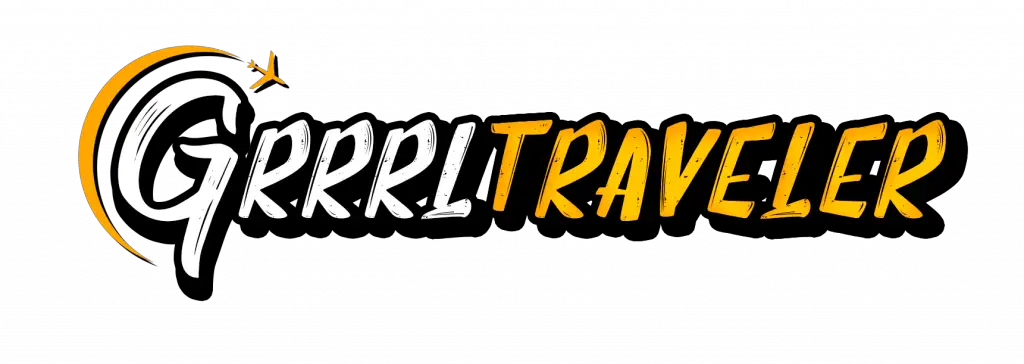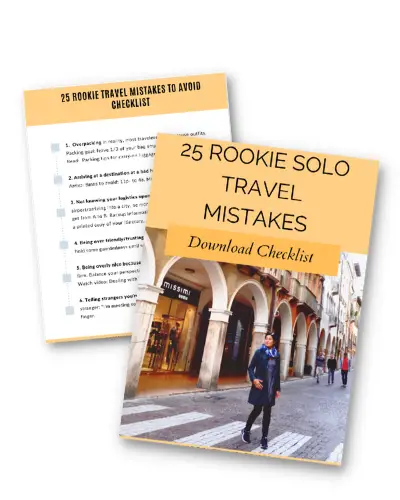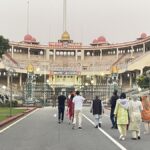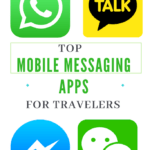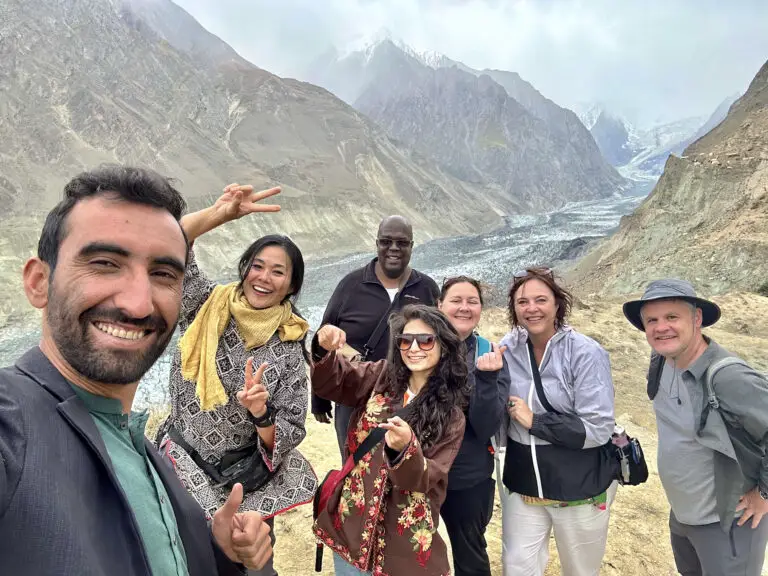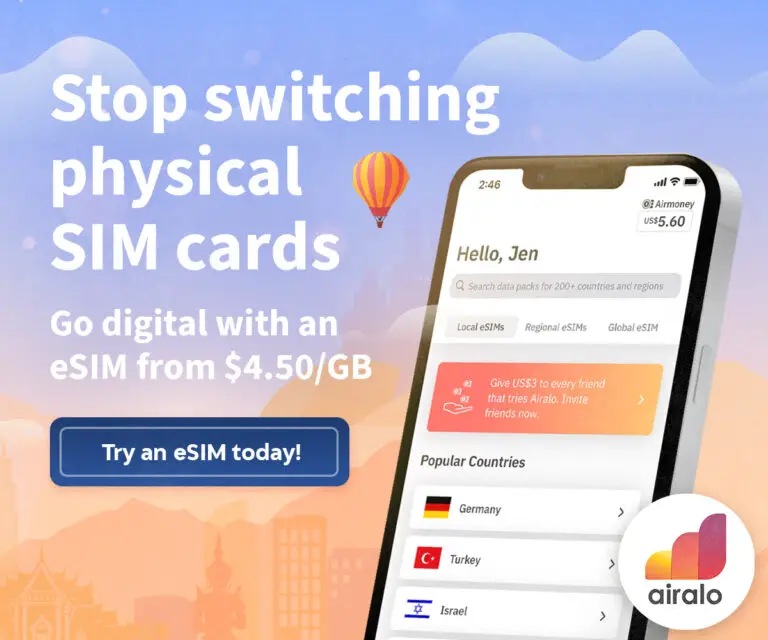Last Updated on January 8, 2024 by Christine Kaaloa
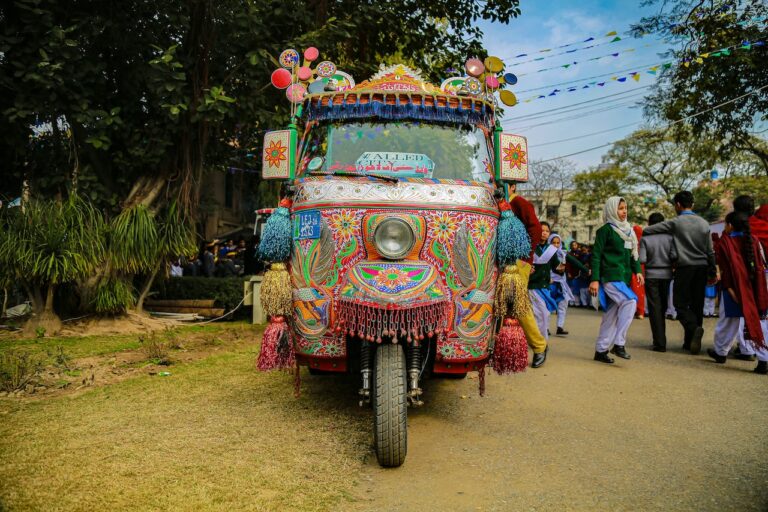
.
Despite ancient history, breathtaking natural landscapes, popular mountain trekking, delicious food and warm hospitality, Pakistan is often overlooked by tourists. However, the country has been gradually opening up to tourism in recent years. Before you plan your trip to Pakistan, there are things to know before traveling Pakistan to make your trip hassle-free, safe and enjoyable This guide shares essential Pakistan travel tips to keep in mind before traveling to Pakistan.
Join my Pakistan group adventure trip
This post may contain affiliate links. I never leave home without travel insurance. Click for the insurance finder tool or check out popular insurance options that travelers use.
33 Things to Know before traveling Pakistan | Pakistan travel tips
Table of Contents: 33 Things to Know before traveling Pakistan | Pakistan Travel tips
- 1 33 Things to Know before traveling Pakistan | Pakistan travel tips
- 1.0.1 1. Pakistan’s Natural Beauty is Heaven on Earth
- 1.0.2 2. Rich Cultural Heritage
- 1.0.3 3. Islam is the main religion
- 1.0.4 4. Outdoor Adventure
- 1.0.5 5. Pakistani Food
- 1.0.6 6. Pakistan food can be spicy and oily
- 1.0.7 7. Hire a food tour or hire a guide to appreciate Pakistani food
- 1.0.8 8. Food Safety & Health in Pakistan
- 1.0.9 9. Vegetarian dishes do exist in Pakistan
- 1.0.10 10. How to get a Letter of Invitation for your Pakistan tourist visa
- 1.0.11 11. How to Get a Pakistan tourist e-visa
- 1.0.12 12. Currency in Pakistan
- 1.0.13 13. Foreign exchange shops
- 1.0.14 14. Withdraw enough cash
- 1.0.15 15. Not all hotels accept foreigners
- 1.0.16 16. Prices in Pakistan
- 1.0.17 17. Urdu
- 1.1 Safety and Security
- 1.1.1 18. Know the areas in Pakistan to AVOID
- 1.1.2 19. Crime in Pakistan
- 1.1.3 20. Armed Security Guards & Military Checkpoints
- 1.1.4 Pakistan roadtrip checkpoints
- 1.1.5 Armed Security Guards for Travelers
- 1.1.6 21. Get perspectives from locals and travelers of Pakistan
- 1.1.7 22. Genuine and Warm Hospitality
- 1.1.8 23. Dress modestly in Pakistan
- 1.1.9 24. Dress is more casual in Northern Pakistan
- 1.1.10 25. Respect local customs
- 1.1.11 26. Strict propriety between sexes
- 1.1.12 27. Female solo travel can feel uncomfortable your first time
- 1.1.13 28. Sexual harassment
- 1.1.14 29. Segregation
- 1.1.15 30. Transportation
- 1.1.16 31. Altitude sickness (AMS)
- 1.1.17 32. Be prepared for emergencies
- 1.1.18 33. Be open-minded
- 1.1.19 What are your Pakistan Travel tips? What would you add to Things to Know before traveling Pakistan?
1. Pakistan’s Natural Beauty is Heaven on Earth
Did you know Pakistan is home to some of the world’s most breathtaking landscapes? From the towering Northern peaks of the Karakoram and Himalayan mountain ranges to the stunningly, lush green valleys of Hunza and Swat, it is not known as the Switzerland of Central Asia for nothing!
Home to some of the world’s highest peaks, it attracts as many hardcore trekkers as Nepal. The country also boasts stunning lakes, such as Attabad Lake and Lake Saif-ul-Malook, and magnificent waterfalls, like the majestic Neelum Valley Waterfall. And the list goes on…
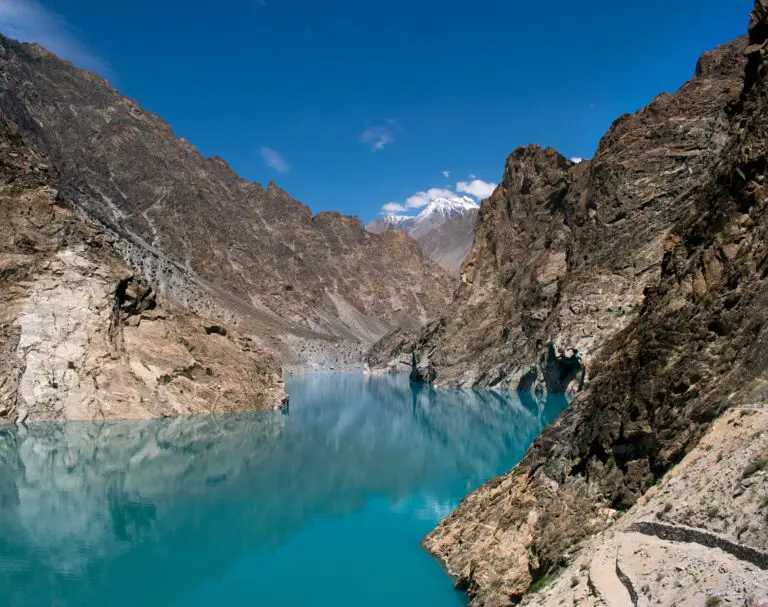
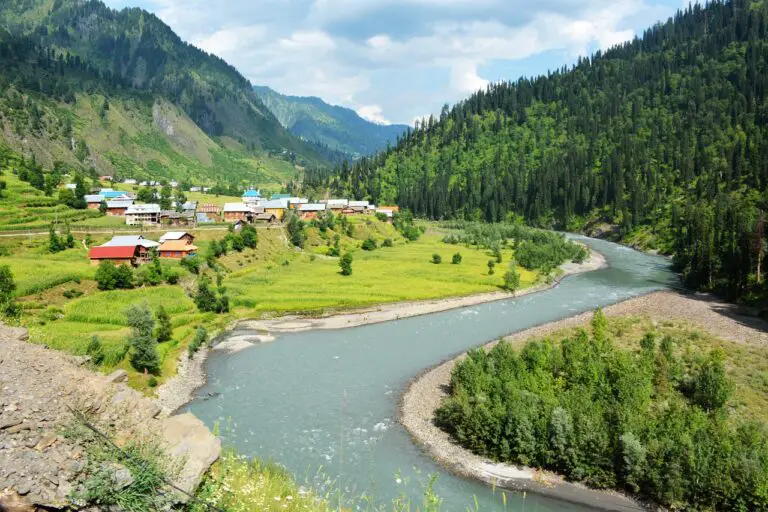
2. Rich Cultural Heritage
If you’re a cultural enthusiast, Pakistan is home to a diverse mix of cultures and traditions, with a rich history that spans over 5,000 years. It has a Sufi heritage which gives way to the ideology of Islam.
Visitors can explore ancient archaeological sites like the ruins of Taxila, an ancient city that was once a center of Buddhist learning.
Archeologically, there are forts, shrines, mosques, tombs, stupas, monuments and petroglyph carvings to visit.
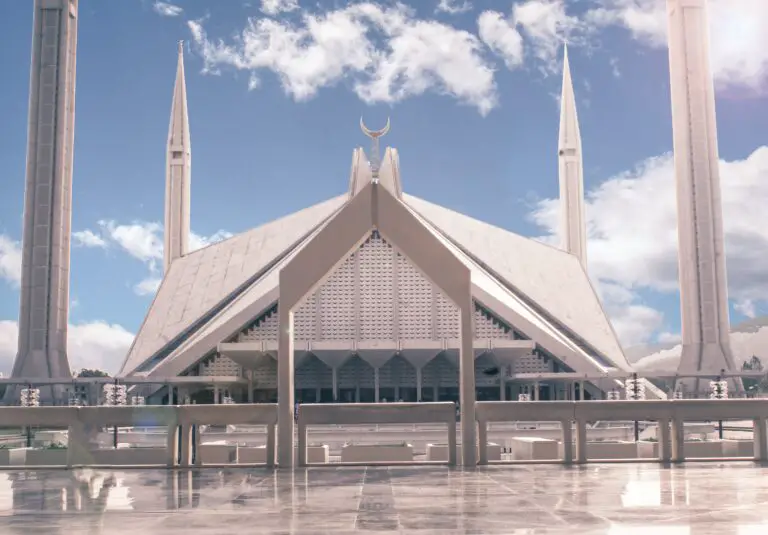
3. Islam is the main religion
Pakistan is 97% Islam, with Hindus, Christians, Parsis, Sikhs, and Buddhists sharing the rest of the breakdown. As an Islamic character, you see mosques, palaces, tombs, and fortresses
4. Outdoor Adventure
Pakistan is an outdoor adventure lover’s paradise, offering a wide range of activities like trekking, mountaineering, and white water rafting. Home to some of the highest and most scenic mountain peaks in the world, many visit Pakistan for trekking. The country’s rugged terrain provides an ideal setting for numerous trekking routes that offer stunning views of the surrounding landscapes. I’ve heard the beauty even surpasses Nepal (gasp!)
K-2 is the second highest mountain in the world. Nanga Parbat, also known as Killer Mountain, is Pakistan’s second highest mountain with a nickname that has solidified its reputation as a challenging trek. But there are easier bucket list hikes that will garner epic views, like Fairy Meadows– known for its seemingly magical beauty- and Passu hike to Borith Lake where you’ll pass glaciers and Lake Attabad.
And this is just the tip of the glacier!
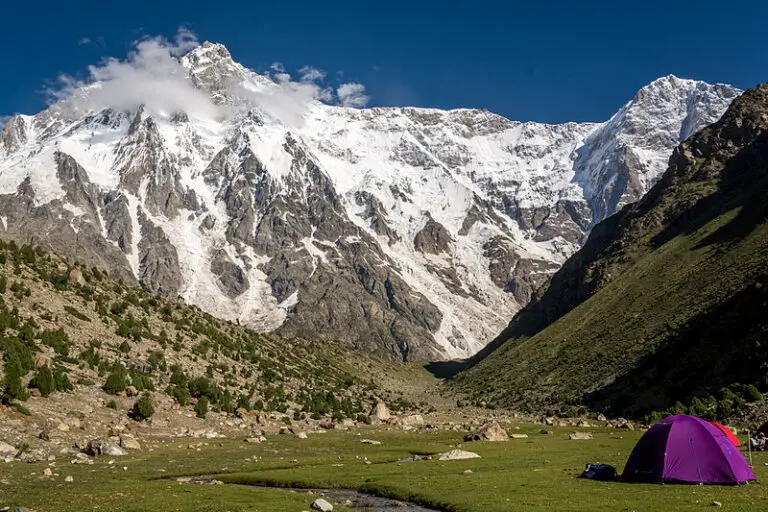
5. Pakistani Food
Pakistan food has Indian roots but its mixed with Irani, Afghani, Persian, Western and Mughal influences (check out this introduction to Pakistani food). It has a wide range of dishes, from spicy and aromatic curries to succulent kebabs and biryanis. Must-try dishes include chicken tikka, nihari, and biryani.
Do you have broader Pakistani eating goals to aspire to?
Check out Migrationology’s list of Pakistan Must Try foods.
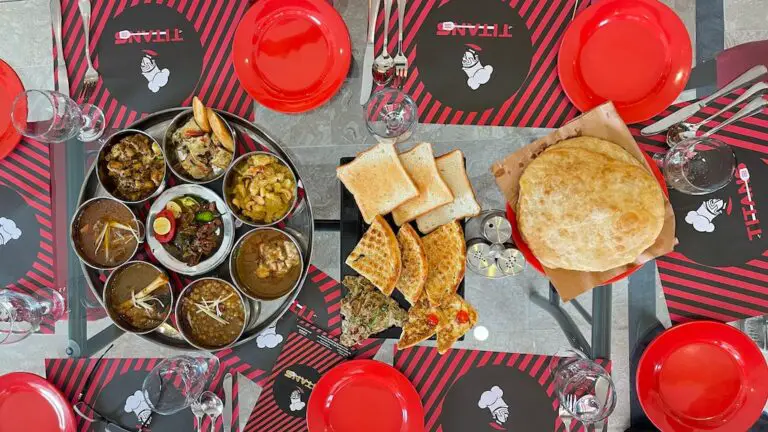
6. Pakistan food can be spicy and oily
Pakistani food is super flavorful, delicious and filling, but it can also be very oily and very spicy. By spicy here, I mean heated flavor. The level of spice can be similar to Korean and Thai dishes, but not to the point of scalding the taste buds. Even my morning scrambled eggs had a heated edge, which actually added to its addicting flavor.
Pakistan food tip: Request a yogurt side dish like raita. It will soothe the heat into a palatable bite.
If you are allergic to or have a low tolerance to spicy foods, hire a guide or take a food tour to be more informed about foods you can tolerate and to have assistance when you order. A guide will be able to find non-spicy foods for you or translate your dietary needs to the cooks. Also know, that might not always be effective. Although we had a local tour leader to request dishes without spice, many Pakistanis do not understand that concept of foods without spic and orders still came with mild spice.
7. Hire a food tour or hire a guide to appreciate Pakistani food
I love taking guided food tours to help me better appreciate and understand the foods of a country. However, Pakistan does not have a many of these yet. So you’re better off hiring a local guide through the recommendation of your hotel.
8. Food Safety & Health in Pakistan
Travelers should take precautions when it comes to food and drink. It’s advisable to avoid tap water and instead opt for bottled water, which is widely available.
Additionally, be cautious where you try street food, as it may not be hygienic. It’s best to have a food guide to introduce you to reputable spots but also be prepared in case you get sick.
Pakistan Travel Tip: Bring your western antidiarrheal just in case. You can also visit the local pharmacy for any medication if you get sick in Pakistan.
Follow my guide on how to avoid getting sick whilst traveling
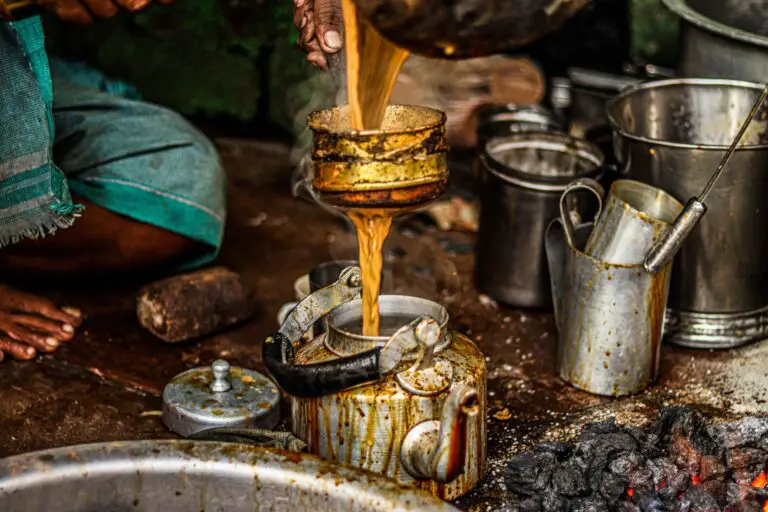
9. Vegetarian dishes do exist in Pakistan
Pakistan is a very meat loving country. Although there are aspects of Pakistani food which are similar to Indian foods, veganism is not a concept in Pakistan. Luckily, there are dishes that just happen to be vegan/ vegetarian such as dal (lentil) dishes, lobhia kah salan (dish with black-eyed peas), pakora (fried vegetable fritters) and aloo paratha.
There are bean and vegetable dish variations prepared with various spices and curries: Shahi daal (moong dal), bhindi masala (okra), maashki dal, aloo chana (potato with chickpeas), lotus root curry, baingan ki borani (eggplant dish), chana dal samosa (see food photos here).
Whether those dishes share the same oil as meat dishes, I don’t know. If you are a strict vegan, you will want to think twice about Pakistan.
If you’re vegetarian traveler, read my Vegetarian Travel Tips
10. How to get a Letter of Invitation for your Pakistan tourist visa
For a while, the only way to get your Letter of Invitation to apply for your Pakistan tourist visa was by being invited by a Pakaistani local, book a spot on a tour with a Pakistan tour operator or buy a Letter of Invitation from a local tour operator. These are the reliable, fuss-free and lawful ways.
Another option for travelers that I’ve heard of -particularly for those who are willing to take risks- is to apply for your Pakistan tourist visa with your hotel booking details. This places responsibility on your hotel to vouch for you. But it also exposes you to encounters with officials, who may be having a bad day or who want to make it difficult for you in order to get baksheesh (aka side payment or bribe).
I’ve heard stories about baksheesh in Pakistan and I’ve seen officials give travelers a bad time by picking on something small to pull them out of line. A passenger in front of me – a family man with wife and child- was pulled aside and taken to a sizeable queue that led to the official “back room”. When the immigration official returned to continue his job, he laughed sneeringly to his buddies. They can make it difficult for you out of mere entertainment.
Get your letter of invitation from a tour operator.
11. How to Get a Pakistan tourist e-visa
Pakistan requires a Pakistan tourist e-visa for entry. You will not be able to board your plane without your visa.
You can apply for a Pakistani visa through the country’s embassy or consulate in your home country but the easiest way is to get a Pakistan tourist e-visa online via the Pakistan government website (if your country is eligible). Always use NADRA, the government site. You’ll be required to have a passport, passport photo and a Letter of Invitation and hotel/itinerary details. It’s not too different from getting an India tourist visa.
You can get a 30-day, single-entry or multiple entry tourist e-visa. The single entry visa itself is good for 3 months. Pakistan visa fees range (you can calculate your cost here).
The process of obtaining a visa can be as quick as a few days or it may take weeks. It is advised to apply at least three months in advance of your trip, so you don’t stress about it.
Tip: It’s always a good idea to make copies of your passport and other important documents. I like to make both, printed and mobile photo copies. The latter gives me quick access and is great when your passport is at the bottom of your bag or back at the hotel.
12. Currency in Pakistan
Pakistan is a cash-based society and the official currency of Pakistan is the Pakistani rupee.
Foreign credit cards are not widely accepted, although you can use them at large western hotels and higher-end shops in large cities. Please bear in mind, the vendors pay credit card fees to credit card companies and thus, lose money from that sale. Use cash for small purchases; the country is undergoing a severe economic depression, so please be a responsible traveler (read my travel tips), before your trip!
ATMs can be found in large cities, but the tricky part is that not all ATMs take foreign cards and some ATMs can accidentally eat them. Thus, it’s always best to go to a bank ATM during operating hours. The max withdrawal you can take out of a Pakistani bank ATM is 60,000 Rs or $65. Fortunately, you can withdraw cash as many times as you need in your visit to the ATM. Just be aware of ATM fees.
Here’s 20 ATM tips you MUST know before traveling
Order Pakistan ruppee from your home bank: Consider ordering Pakistan rupees from your home bank, to reduce your stress and have money when you arrive into Pakistan. Bear in mind, as Pakistan does not see a lot of foreign travelers, airports may not have a strong infrastructure to deal with their needs properly. It will cost a little more, but finding a foreign currency exchange or bank ATM that accepts foreign credit cards is one of the trickier things about traveling Pakistan.
When I arrived into Islamabad airport, there was one non-descript foreign exchange desk and no ATMs that took foreign cards. The arrivals area for tourists did not have foreign travelers in mind so there was not a strong infrastructure for dealing with their needs. At the currency exchange desk I was able to exchange $100 USD; that was all I was allowed.
13. Foreign exchange shops
Foreign exchange shops take USD, Euro & popular currencies. Exchange money at local banks to avoid scams. However, many banks in Pakistan don’t exchange money, you must go to a money exchange office or Western Union. The country is sensitive to money laundering, so you will need your passport and visa. It is helpful to have a local person with you as a sort of guarantor that you are who you say you are and your business in Pakistan is for tourism. Tip: Bring clean unmarked and newish looking bills.
14. Withdraw enough cash
Before traveling up north or to more remote villages, withdraw enough cash as ATMs are limited, challenging to find and its dispenser may run out of cash. On the tour, it is advised to take out enough money before leaving the urban cities.
15. Not all hotels accept foreigners
Pakistan is a wonderful country to travel but it can be tricky. Just as not all ATMs accept foreign debit cards, not all hotels accept foreigners.
16. Prices in Pakistan
Prices in Pakistan are inexpensive for a western traveler. It’s in the ballpark of India prices, with quality being higher.
Budget and guesthouse lodgings: $5-$30 USD
A Coke 30 cents USD
My Kurta tops: $6-8 USD
Salon hair cut & style: $24 USD
Room service sandwich: $5 USD
A restaurant meal: $2-4 USD
Meal at Mc Donalds or Subway sandwich : $4 USD
Responsible Pakistan Travel Tip: Some travelers love a great deal to the point of cruelty. I wouldn’t haggle a vendor down from a decent wage, especially given Pakistan’s economic depression. I’ve spoken to workers and it’s gotten so low that some are considering moving away. Prices are quite low — getting a vendor to give you something for practically free is not cool; it’s cruel. Know your prices and be mindful that vendors need to feed a family in their country, while you are taking a vacation.
Average Monthly Net Salary in Pakistan: $168 USD/month
Average cost of apartment rental in Pakistan city: $100/month USD
17. Urdu
The official language of Pakistan is Urdu. Although many people in Pakistan speak English, it’s still a good idea to learn some basic Urdu phrases, such as hello (salam), thank you (shukriya), and please (meherbani).
On another note, you will find a predominance of signs in English when traveling Pakistan. Fret not when looking at food menus or transportation instructions.
Safety and Security
18. Know the areas in Pakistan to AVOID
It is always advisable to check the latest travel advisories from your country’s government before planning your trip to Pakistan. But it is also important to get a fuller picture from the travelers and locals that are actually traveling and living in Pakistan in real time. Check travel blogs to research what travel bloggers have experienced and search online travel forums.
Pakistan has its share of security challenges with the bordering countries it has and the nation dipping into economic depression. Researching online media you’ll negative and scary stories about Pakistan; although, I’ve typically found that about many countries I’ve wanted to travel: India, Turkey, Greece, South Korea, Thailand, Myanmar, Mexico. Read my thoughts on why Solo Travel is safe for women. Although there is a level of truth to western media, danger exists in every country. After traveling (and living in some of) those countries I mentioned, I consider the U.S. as being more dangerous, so amidst the media noise, a solo traveler must reach for a more grounded perspective from locals and travelers in the field.
While a majority of Pakistan is safe for tourism, there are areas that are considered “high risk areas” and are off-limits to foreigners. High risk areas to avoid in Pakistan are the border regions with Afghanistan and India (the Wagah border is safe and it is also open for crossing). Parts of Balochistan and Khyber Pakhtunkhwa provinces are also best avoided. These are places you would not generally stop to visit if you were a tourist and if you did, you might pass through it but any extended stays, the government would send security escorts.
Main cities and Northern Pakistan are generally considered safe for tourism.
19. Crime in Pakistan
To think crime does not exist in any country is naive. Every city and country has crime and poverty. Be street smart and proactive anywhere you go.
Pakistan is going through a bad economic depression. Many locals have talked about with me. They feel it. For the most part, Pakistani nature is hospitable, generous and friendly. But there will be urban pockets where locals may advise you to not flaunt your valuables or mobile phones.
Pakistan Travel Tip: Ask locals and your hotel if there are any areas to avoid. They will kindly tell you what to look out for and which neighborhoods are best avoided.
20. Armed Security Guards & Military Checkpoints
Armed security guards and military police checkpoints are a norm in Pakistan. The wealthy employ them as staff outside their mansion. You’ll find them everywhere.
Pakistan roadtrip checkpoints
If you’re doing an independent road trip in Pakistan, prepare to get pulled over multiple times. On my Pakistan group adventure, our operator created several copies of our group information (with the names and passport numbers of each traveler) to give to our driver to distribute, along with his driving information. thus, if you’re doing a Pakistan roadtrip independently, be prepared to get pulled over and show your driving and passport details.
Tip: If doing an independent road trip in Pakistan, have multiple copies of your passport handy.
Armed Security Guards for Travelers
The Pakistan government and tourism department keeps a hawk-eye on travelers entering their country. They know about everyone who is entering Pakistan and who they need to watch for. The Pakistani government and tourism department work hand-in-hand to take responsibility for safe travel in their country. They want to know that you’re there to be a tourist and not falling into high risk areas, where there is controversy, conflict or potential terrorism, like Balochistan states or tribal areas. The moment a traveler hops the curb into a security sensitive place, the tourism board deploys armed security guards to “escort” them to safety. This is wonderful if you’re a very security loving traveler. But a complaint of independent travelers is that they find it restrictive of their freedom. I personally, like the security mindedness, although I can see the cons towards independent travelers.
After arriving in Naran and wanting to do a bit of wandering and snack shop exploration of the town, our hotel sent an armed security guard to escort our group. They mentioned that the day or week prior- there was a local protest and unrest, so they wanted to provide this extra measure of safety. As hotel guests, the hotel felt responsible for our safety. Thus, our guard’s function was to take us to get our snacks and then bring us back immediately. No wandering or town exploration as I had hoped. In the morning I attempted this again and the morning guard dissuaded me from leaving the hotel grounds.
Pakistan Travel Tip: If you feel you want an escort, you can hire a security guard escort through a local operator or the tourism department. They can be inexpensive because they are a common service. If you don’t want to splurge, then wandering into a risky area could get you one for free!
21. Get perspectives from locals and travelers of Pakistan
Locals know where the dangerous zones are and whether warnings are well-warranted.
If you ask travelers traveling Pakistan and Pakistani locals, if Pakistan is safe, you’ll find many replying with a resounding YES! They’ll tell you the hospitality of Pakistani people is overly welcoming and people will open their homes to you. What you’ll experience in Pakistan is always going to be greater and what you see on western media is a small piece of the greater pie.
When the U.S.A travel advisory marked Khunjerab national border (by China) as dangerous, a local tourism government official corrected me and said that the border is safe and open for crossing. I’ve read online that the India-Pakistan borders are unsafe, but researching border crossing via the Wagah border, I’ve found the border is open and thus, one of the travelers of my group successfully crossed Into India from Lahore!
Read my Pakistan- India border crossing instructions
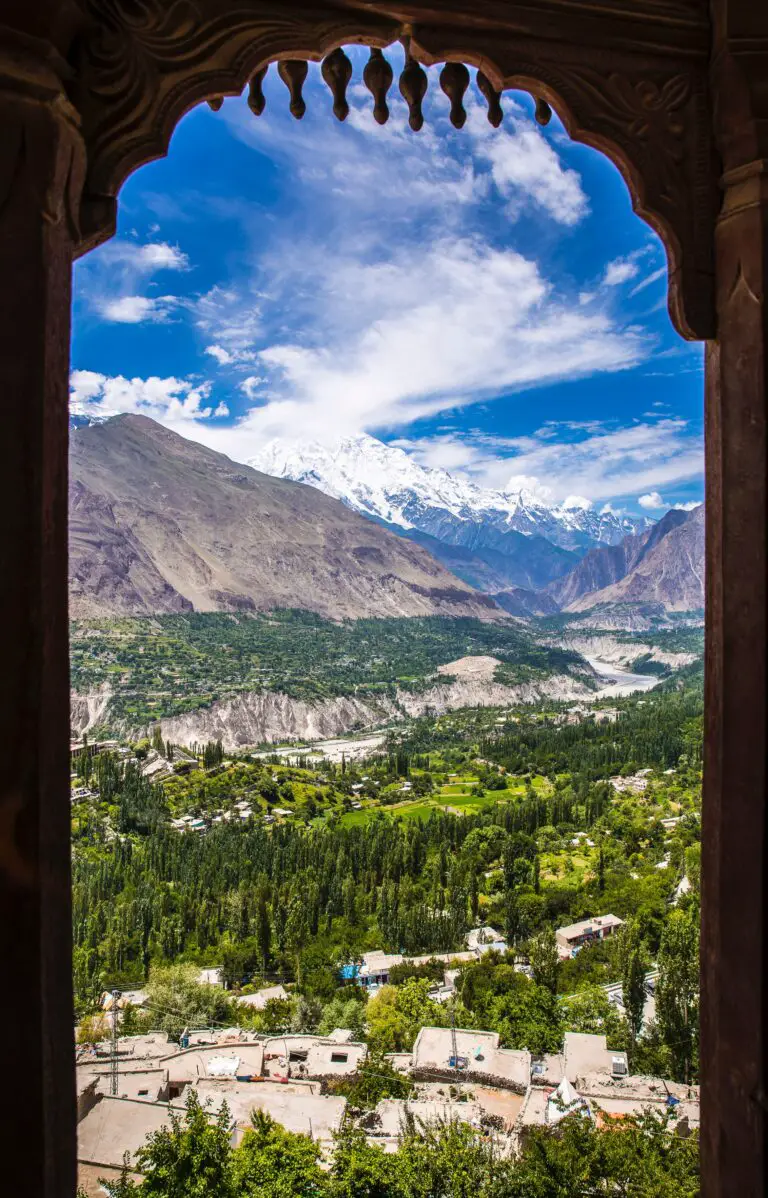
22. Genuine and Warm Hospitality
Pakistani people are renowned for their kindness, generosity, and hospitality, and visitors often find themselves making new friends and connections, welcomed with open arms by the locals. Nevertheless, solo female travelers should show a little restraint as solo interaction does not always mean the same thing.
Read my 31 Solo female travel safety tips
23. Dress modestly in Pakistan
Being Muslim, Pakistan is a conservative country, so it’s important to dress modestly, especially when visiting religious sites.
Both, men and women are recommended to cover their shoulders, arms, and legs in public.
For men, T-shirts and jeans/trousers or okay anywhere in Pakistan.
Women should wear loose-fitting clothes that cover their arms and legs, and a headscarf is recommended when visiting mosques.
The Shalwar kameez is a light-weight, loose-fitting shirt/blouse top and pants combination. If you’ve ever bought a kurta in India or Nepal, then you can likely use that. The shalwar kameez is the common local denominator of comfortable clothes, for both men and women (read tips on how to buy/wear one). It is an ideal outfit to navigate both, weather fluctuation and cultural etiquette.
24. Dress is more casual in Northern Pakistan
In the mountains of north Pakistan in the Gilgit-Balistan and Hunza Valley regions dress etiquette is more more flexible, as locals are used to seeing tourists trekking in all kinds of clothes. For women, long sleeves are still recommended, but t-shirt wearing is okay only when trekking or engaged in physical exertion. No shorts, short skirts for men or women however. Bikinis are out if you’re planning to jump into a river or lake.
25. Respect local customs
Pakistan has a rich cultural heritage, and it’s important to respect local customs and traditions. For example, it’s considered impolite to eat or drink in public during the month of Ramadan, and you should always remove your shoes before entering a mosque or someone’s home.
26. Strict propriety between sexes
Pakistan is a strong patriarchal culture. Families are very protective about their daughters and wives and so you won’t see many of them outdoors in public, unescorted. Women you’ll see travel in groups of women or with a husband. Thus, you will notice a shocking population of men walking the streets and employed in visible labor positions.
Pakistan has strict unspoken cultural rules about propriety between sexes and there is little public interaction between them, unless they are work colleagues.
Advice from local Pakistani women and female travelers, who have traveled Pakistan will warn you that even a smile can be taken the wrong way. Flirtation with men won’t be taken casually and should be avoided. Being from Hawaii, it’s easy for me to start chatting, asking questions and joking casually; it was too challenging for me to not be this way, so I bounced between smiling and being super don’t-f***-with-me serious .
In Islamabad, some young men saw me vlogging and wanted to know my YouTube channel. They were acting in a curious but rowdy and imposing way. I knew this curious interaction – likely very innocent- was culturally not supposed to happen and I did not want to make any mistakes, so I kept walking. My driver who was accompanying shoo’d them away, scolding them that they should know better.
27. Female solo travel can feel uncomfortable your first time
Be prepared to encounter stares and more stares if you’re a foreign-looking, female solo traveler. I felt this discomfort traveling India over a decade ago and with Pakistan. It can feel dissettling. The way locals treat women are different from men, whom they might be curious enough to approach for a selfie.
Everywhere I went alone, men, women and children stared as if they never saw a person who looked like me. Locals don’t see foreign tourists often and most assumed I was Chinese.
I made the mistake of going out during a public holiday and the streets in Lahore, were filled with men, who stared at me from all around. Younger men attempted to get closer, to look at or approach me and I ultimately decided not to vlog my experience because being stared at felt so uncomfortable.
Aside from intense and uncomfortable curiosity, I still felt local Pakistanis were kind. Some men helped me hail a taxi in spots that were hard to get to or find. Others were just really hospitable in a respectful way.
There’s a bit more complexity to this matter of gender interaction. I’ll have to do a separate post on it.
Tip: Due to the fact many Pakistan are genuinely hospitable, it’s important to ride that fine like between trust and caution, especially in regards to gender interaction. I would never recommend a female solo traveler to place her guard 100% down or entrust it to a man she barely knows.
Explore Pakistan with me through my group adventure
28. Sexual harassment
Similar to India, sexual harassment can exist in a male hierarchical society like Pakistan. Female travelers who are naive and do not understand cultural improprieties, may be in for a rude awakening. This is why it is always important to research cultural etiquette before traveling Pakistan and dressing modestly to blend in is advised.
If you’re a woman, avoid sharing your personal marital or hotel details, phone number or email with Pakistani men. The advice feels similar to India in that it opens the door to potentially accepting sexual advances. I’ve read about women being stared at, being groped in passing or exchanging their phone number only to get a barrage of sexually explicit texts and inappropriate invitations. This did not happen to me when I visited Pakistan, but I left a very little opportunity for it.
It is essential to understand that sexual harassment is not acceptable behavior in conservative culture that Pakistan is. Men should not misbehave towards women.
Tip: Bringing it to public attention in a loud way, the community will bear down on the man and come to the woman’s rescue. If no one comes to assist, then be even louder and shaming so that people know he is a scoundrel.
Check out my India travel survival tips – they can be applied here.
29. Segregation
Due to the strict code between the sexes and the possibilities of sexual harassment that Pakistani women face, there is a strict code of segregation to protect women from unpleasant situations. Look for the female and male sections. If you are the only woman who is surrounded by men in a train car, you’re in the male section. Leave and look for signs for the female section. there are female cars and male cars.
30. Transportation
Pakistan has a well-developed transportation system and city-to-city highways feel like western freeways, even down to the caution signs. There are many similarities between European and U.S. driving. Roads are much nicer and surprisingly higher in standards compared to neighboring countries like India and Nepal, where remote villages might be gotten to via rocky dirt roads.
Road safety standards in Pakistan may not always be up to par with western safety regulations, especially when traveling into the northern regions. The iconic Karakoram Highway (the 8th Wonder of the World) is the longest road but parts of it can narrow to a dangerous one-vehicle road. Pakistani drivers are surpring expert at navigating this type of one-vehicle road face-off as well as the paper slim pass by’s– our driver Aadil was so professional! Accidents are not uncommon and weather can affect road safety. There are landslides and glacial streams running through and over the roadways, and certain seasons this road will be closed.
Buses can be crowded. It’s recommended to use a reputable taxi service or hire a private car with a driver. Some travelers like to bike or drive a motorcycle to get around. Just know road standards may change with the weather. Keep plans flexible.
When using public transportation, avoid traveling at night. If you’re renting a car, be cautious and avoid driving in remote areas or at night.
Pakistan still does not have a metro. They have flyover buses- like in Rawalpindi, a bus that has a separate flyover lane above street traffic, dropping you off at station stops similar to if you were to ride a metro.
Tip: Pack light so you can fit on crowded public transportation. Check out 6 Best Convertible Carryons for Solo Travelers
Road trip tip: If doing an independent road trip in Pakistan, consider hiring a driver! They are experts at navigating the Karakoram HIghway and you may come across several situations where you’ll be glad to have one!
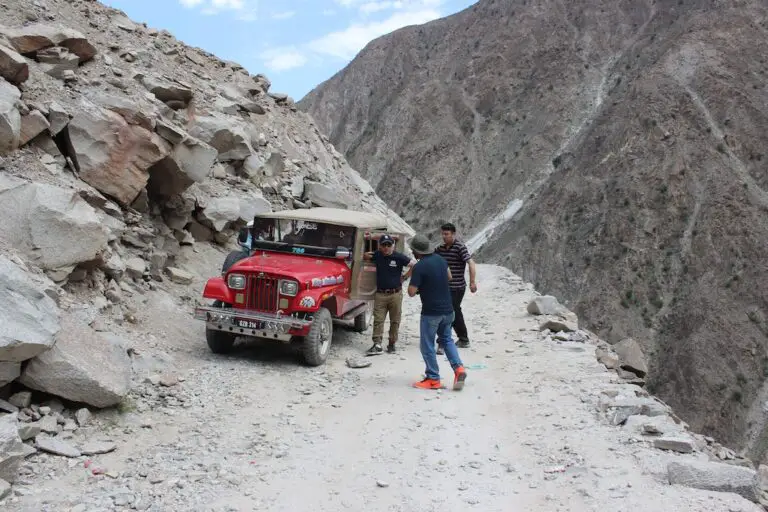
31. Altitude sickness (AMS)
When visiting Northern Pakistan, you’ll be traveling higher altitudes and thus, may experience symptoms of Altitude sickness or AMS (Altitude Mountain Sickness). This occurs when there is a lack of oxygen in your body and it needs to acclimatize. Symptoms can range from nausea, vomitting, dizziness, headaches, physical fatigue, shortness of breath, rapid pulse, insomnia (read this Pakistan blog and Nepal trekking blog ) .It’s best to avoid physical exertion and acclimatize before going higher. It’s best to consult your doctor if you have any pre-existing medical concerns.
The first day I arrived in Ladakh– which runs parallel to areas of Northern Pakistan- it felt exhausting simple to walk from my hotel into town and my heart raced at night as I was going to bed. I had to take things slow for the first couple of days.
Pakistan Guide Tip: Some of my travelers used altitude sickness patches that they claimed worked!
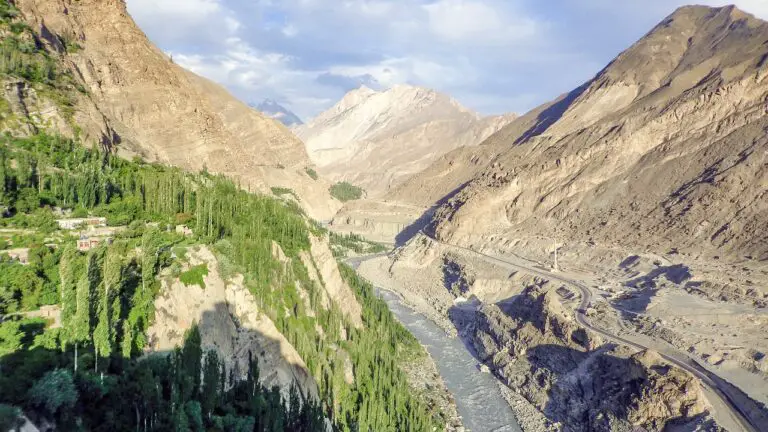
32. Be prepared for emergencies
Make sure you have travel insurance that covers medical emergencies and repatriation. I always carry a small first-aid kit of bandaids and antibacterial ointment. Know the location of the nearest hospital or medical facility. I like to always be aware of the local pharmacies; when i’m sick, I make a visit there.
33. Be open-minded

Conclusion
In conclusion, Pakistan is a hidden gem that offers visitors an array of natural beauty, cultural heritage, warm hospitality, adventure sports, and delicious cuisine. Despite some negative portrayals in the media, the country is generally safe for tourists who exercise common sense and take necessary precautions. By following these guidelines, you can explore the country’s rich culture, history, and natural beauty without any hiccups.If you are looking for an off-the-beaten-path adventure, Pakistan should definitely be on your travel radar.
Ready to travel Pakistan with me? Join me on a fall Northern Pakistan adventure
Can’t make my Pakistan trip dates but want to travel my itinerary on your own?
Email me for tour information
What are your Pakistan Travel tips? What would you add to Things to Know before traveling Pakistan?
